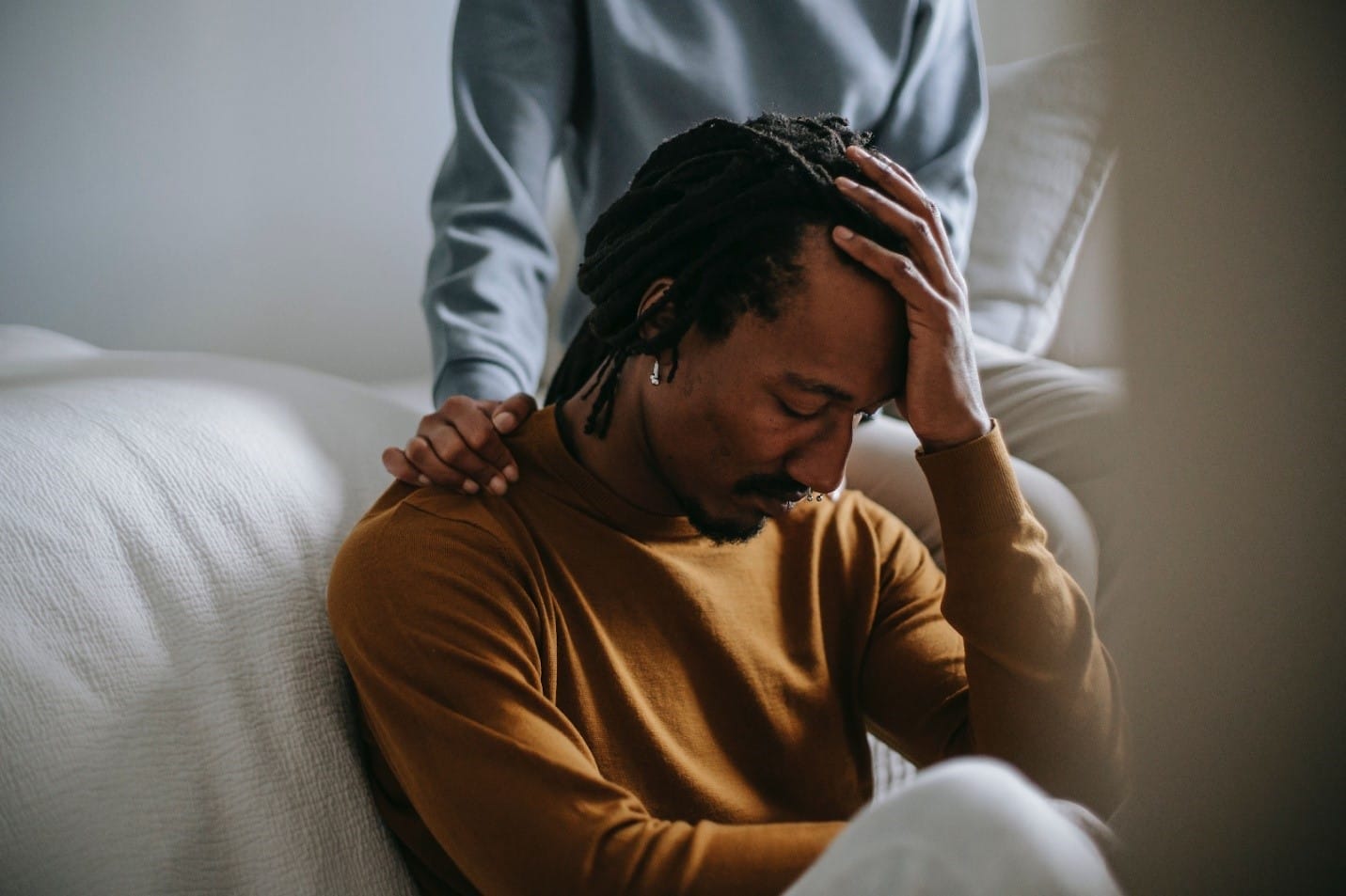
There is no right answer for how you should be feeling following the suicide of someone close to you.
Grief is complex, and it’s rare that any two people will experience it in the same way.
Just know that whatever you’re feeling is okay.
Some of the most common emotions people report feeling when coping with a loved one’s suicide include:
Shock

Especially in the early aftermath, it’s common for people to feel numb, disconnected, and distracted. This shock may last for a long time. You may feel a sense of detachment from reality until you are better able to process what happened.
Severe Depression
Depression following a traumatic loss can be almost identical to the symptoms of clinical depression. There may be a lack of energy and motivation, difficulty sleeping, loss of appetite, and overwhelming sadness.
This may ease with time, but in some cases it can mark the onset of an ongoing depressive disorder.
Anger

Our brains often try to find someone to blame to protect us from the impact of a loss.
You may be angry at yourself or another loved one for not noticing or acting sooner, or at whatever systems you believe failed the victim.
You may even feel angry at the deceased person for abandoning you or for upending your life with their decision.
Relief

If the suicide took place after a long and difficult struggle with mental or chronic physical illness, you may feel a sense of relief that it’s over—particularly if their illness put frequent strain on their relationships.
This is more common than you think, and a lot of people experience this, but you may begin to feel like you’re a uniquely bad person for feeling this way.
This can easily cycle into guilt.
You may begin to convince yourself that you secretly wanted the victim to be gone or feel selfish for your relief over not having to care for them or manage their difficult emotions anymore.
Human relationships are complicated, as is grief, so try to remember that you are not the first person to ever feel this way. Relief does not mean that you’re happy they’re gone, just that you wish something could have been different while they were still around.
Guilt

Loss can often feel senseless, and so you may fall into a cycle of “if only” to find reason for what happened. Guilt can also result from any other emotion you may find yourself feeling...
- Guilt about being detached when people are relying on you.
- Guilt over feeling angry.
- Guilt about any moments of happiness you manage to have in the midst of your grief.
Guilt is complex and is perhaps the most common feeling for close loved ones of a suicide victim to experience.

You may experience one of these feelings overwhelmingly throughout your grieving process, or perhaps all of them in some capacity at different times. You may also be feeling something entirely different from any of these.
However your grief is manifesting, there is no wrong way to feel at a time like this. More importantly, you are likely not the only one feeling this way.

People tend to mask when they are feeling something they believe to be inappropriate for the situation, but if you are feeling confusion, guilt, and anger at this tragedy, it’s likely another loved one is struggling with the same feelings.
It may be helpful to talk to others who are experiencing this loss with you. Some may need more space to process their feelings on their own, but others can benefit greatly from sharing their feelings with each other and holding space for whatever emotions are brought to the table.
Finding solidarity in the way that you are grieving can make the process feel a lot less lonely.
Confronting the Why

Survivors often end up torturing themselves trying to understand why their loved one chose to end their life. It’s very easy to get caught up in replaying the last interactions you had with a person before their suicide to dig out clues that might help make sense of it.
The truth of the matter is that suicide is complicated with no singular explanation for why it happens.
However, a framing that may help it to settle a little better in your mind is this: At the end of all things, your loved one died of an illness.
Most, if not all, victims of suicide were suffering from an acute mental illness. Mental illness causes the chemicals and neurotransmitters in the brain to malfunction in ways they are unable to control.

It was their illness that caused them to feel the compulsion to end their life.
A huge factor of mental illnesses like Depression, Bipolar Disorder, Schizophrenia, and others are that they fundamentally distort a person’s perception.
In their book After Suicide Loss: Coping With Your Grief, Psychologists Bob Baugher and Jack Jordan explain:
“Medical research is also demonstrating that major psychiatric disorders involve changes in the functioning of the brain that can severely alter the thinking, mood, and behavior of someone suffering from the disorder…
The illness produces biological changes in the individual that create emotional and physical pain (depression, inability to take pleasure in things, hopelessness, etc.) which contribute to almost all suicides.”

Often people who suffer with suicidal ideation don’t actually want to die, they simply want the anguish or emptiness that their brain is inflicting on them to stop, and for some, death feels like the only way out.
It may feel like the only thing they can control in a situation that feels fully out of their control.
Mental illness is treatable just as any mental illness is treatable—but some people still succumb to their cancer even with treatment, while others recover and go on to live a full life.

Your loved one did not choose to become ill, and they would not have chosen to end their life had their illness not been pushing them to do so.
You do not need to wonder why their friends and family weren’t enough to keep them around, or why they would want to give up on whatever promising future they may have had. Illness does not have a sense of any of those things—and in the end, their illness is what ended their life.
Understanding this will not make the loss hurt any less, but it may help to reconcile some of the confusion so you can grieve a little more peacefully.
How to Talk About What Happened

An unfortunate inevitability following a suicide is that you will probably have to tell a lot of people the news about what happened.
By this point you’ve likely already gone through the difficult process of informing immediate family members and friends.
However, it may also fall on you to inform the victim’s employer, teachers, or extended family who may have been out of the direct loop about why your loved one is no longer around. These can be emails if you are not feeling up to calling, and the messages can be direct and brief.

What may be more difficult to handle are conversations with members of your extended community.
In the aftermath of any premature death, people outside of the deceased person’s direct social circle will always want to know what happened. Obituaries often leave out the cause of death, so there will be a lot of questions.
Approach these discussions however you need to.
Many survivors find it helpful to just be straightforward with anyone who asks, but you are not obligated to be. Do not feel as though you are being difficult or unpleasant if you need to tell someone you don’t want to discuss it.

If they were not close to the victim, then all they truly need to know is that the person died.
People will be curious, but they are not owed your limited emotional energy.
Become comfortable with saying no.


